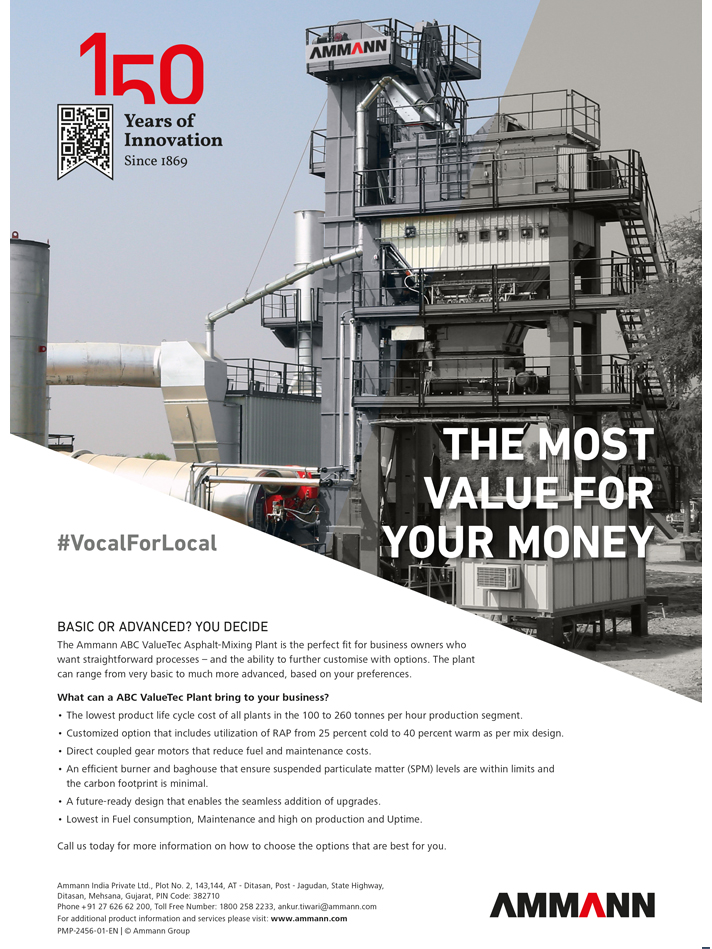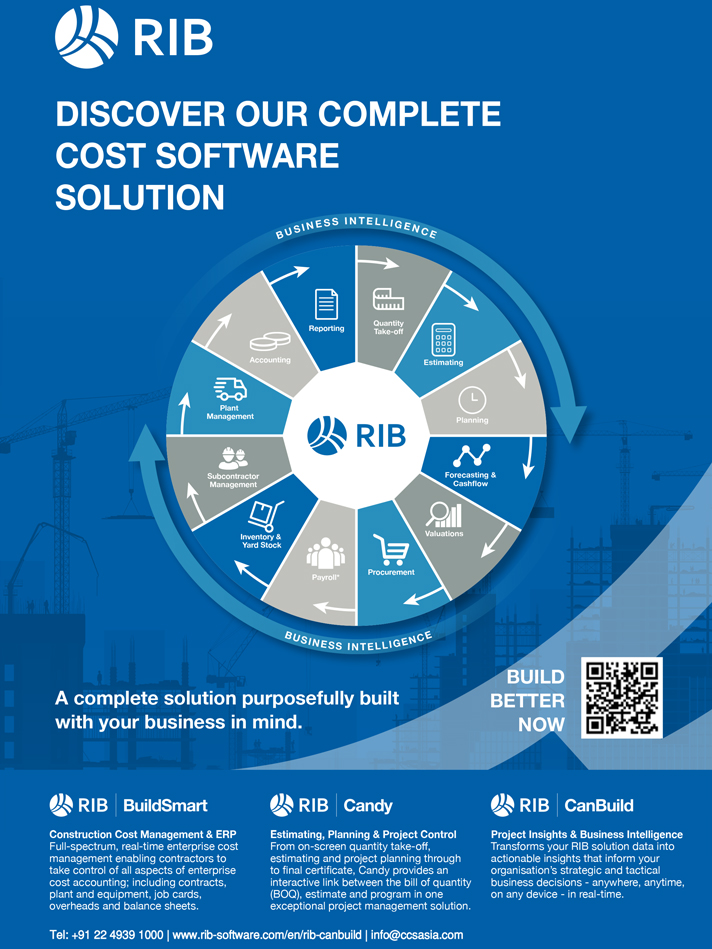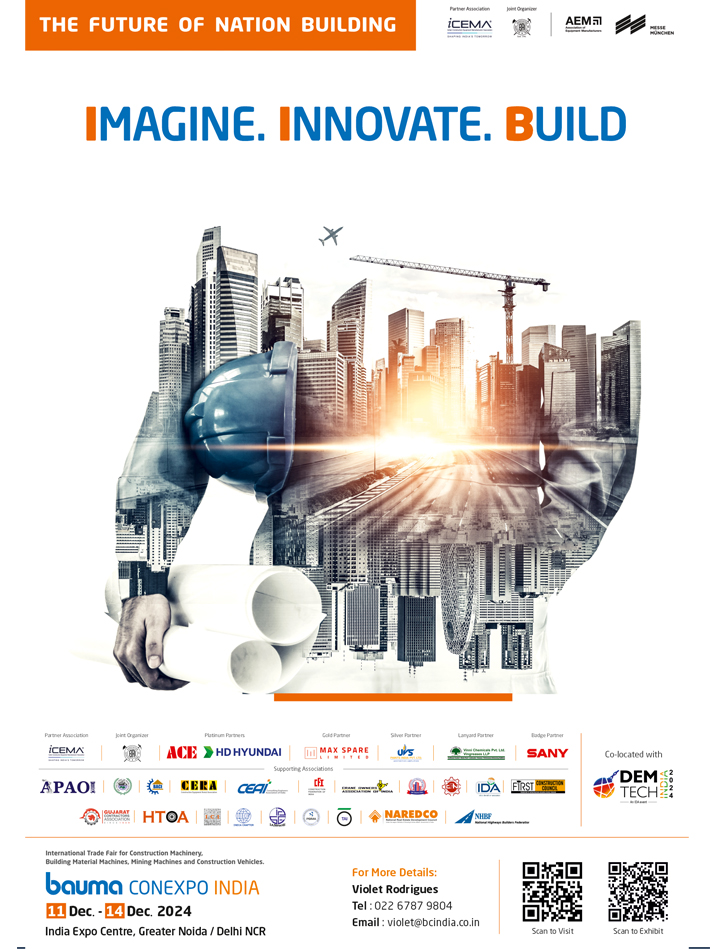NEEPCO to develop 2620 MW hydro projects for Andhra Pradesh government
The North Eastern Electric Power Corporation Limited (NEEPCO), a 100% subsidiary of NTPC, took a significant step towards sustainable energy development by signing a Memorandum of Agreement (MoA) with the Government of Arunachal Pradesh. The ceremony took place in Itanagar, solidifying their joint commitment to developing 2620 MW hydroelectric projects.
These hydro projects are poised to be pivotal in advancing India’s green energy objectives, aligned with the Nationally Determined Contribution (NDC) target. The NDC target aims to achieve an impressive 500 GW of non-fossil energy capacity by 2030. The hydro projects’ contribution will be crucial in reducing the nation’s carbon footprint and accelerating the journey towards achieving Net Zero carbon emissions by 2070.
In addition to their environmental benefits, these hydro projects hold great promise for the region’s economic growth. The projects are expected to generate substantial employment opportunities, boosting the local economy and fostering skill development and technical expertise among the local population. With this MoA in place, NEEPCO and the Government of Arunachal Pradesh are set to collaborate on a venture that not only harnesses the immense potential of hydroelectric power but also paves the way for a cleaner, greener, and more sustainable energy future for India.
Mega infra push for BRO projects! Airstrips, tunnels, roads and bridges to be constructed along the northern and western borders
Defense Minister Rajnath Singh iinaugurated 74 Border Roads Organisation (BRO) projects, including airstrips, tunnels, and bridges along the northern and western borders, announced BRO Director General Rajeev Chaudhry recently. Lt. Gen. Chaudhry spoke after inspecting the nearly half-kilometer-long fully constructed Devak Bridge that connects areas along the International Border (IB) with the mainland.
Devak Bridge coming soon
The inauguration date for the Devak Bridge will be confirmed soon. It will be dedicated to the nation during the defense minister’s visit to the Jammu region. The DG informed reporters that during this visit, the minister will also inaugurate 74 additional projects, encompassing two airstrips, tunnels, bridges, and roads.
The completion of the Devak Bridge in Samba district is a notable achievement accomplished within two years under Project Sampark. This strategically positioned bridge on the Devika River holds immense importance from both strategic and socio-economic perspectives. It facilitates swift movement of forces along the border, benefiting the villages of Folpur and Gulpur situated along the IB.
Previously, villagers faced challenges crossing the river, particularly during periods of high water levels. The bridge, located approximately 3.5 km from the International Border, spans 422 meters.
Akhnoor-Poonch road
The DG highlighted the ongoing construction of the pivotal Akhnoor-Poonch road along the border. This road’s widening includes the addition of four tunnels—Kandi, Sungal, Nowshera, and Bhimbergali. The project’s remarkable progress is expected to conclude within the next two years.
He also discussed the strategic hinterland road of Bani-Basholi-Baderwah. Of its total 165 km length, 125 km has been surfaced, with the remaining 40 km projected for completion by March 2025. Notably, 89 km of road between Basholi and Bani, as well as 35 km from Baderwah to Chatergalla, has already been completed.
Infrastructure development along the Sino-India border
Regarding infrastructure development along the Sino-India border, he noted BRO’s successful establishment of substantial bridges, including modular designs, over the past three years. These new double-lane bridges replace earlier single and fragile structures, enabling the efficient movement of various vehicle types, even in challenging conditions.
He cited the BRO’s pivotal role in addressing traffic flow disruptions caused by the July 19 flash floods that damaged the Tarnah Bridge on the highway. The BRO-managed roads in the area were swiftly redirected to handle the entire traffic load, playing a crucial role in resolving the situation.Asked about BRO’s efforts to connect remote areas through roads, he highlighted that this achievement was acknowledged by the President of India in her address to the joint parliamentary session. The prime minister has also emphasised the BRO’s essential role in providing villages access to developmental amenities such as schools, health centers, police stations, and administrative offices through the infrastructure push.
Bihar allocates Rs.542 cr for groundbreaking museum tunnel link
The Bihar government has sanctioned Rs 542 crore for the construction of a ‘world-class heritage tunnel’, a subway that will connect the Bihar Museum with the Patna Museum.
The decision to this effect was taken in the cabinet meeting chaired by Chief Minister Nitish Kumar. The proposal was mooted before the cabinet by the state Urban Development and Housing Department.
S Siddhartha, Additional Chief Secretary (Cabinet Secretariat), said, “The project to construct a 1.5 km tunnel, connecting Bihar Museum with Patna Museum, has already been assigned to Delhi Metro Rail Corporation (DMRC). The cabinet approved the revised budget of Rs 542 crore for the project.” The tunnel will provide connectivity from Bihar Museum (located at Bailey Road) to Patna Museum (situated at Chajju Bagh), he said, adding the project will be completed by 2026.
Bihar Chief Minister Nitish Kumar, who inaugurated Bihar Museum Biennale-2023, said, “The state government is working on an underground tunnel to connect the Bihar Museum and the Patna Museum, stretching for over 1.5 km. Once complete, it will enable visitors to explore both museums through this tunnel on a single ticket”.
“The tunnel will be fully air-conditioned with two lifts on both sides of the tunnel. Stairs and pedestrian passage will be for those who are willing to walk the distance. It shall be equipped with battery-operated golf car for smooth, convenient, and eco-friendly transit service to the visitors”, said another senior official of the Bihar government.
It will be equipped with all safety measures for fire safety and safe evacuation of the visitors, he said.
NHAI prioritises Maduravoyal-Sriperumbudur elevated corridor in infra plan
The Rs.3,500-crore project of the National Highways Authority of India (NHAI) on the 23.2-km-long Maduravoyal-Sriperumbudur elevated corridor is likely to begin before the end of this financial year. It has been included in NHAI’s work plan for this year.
The detailed project report (DPR) for the six-lane corridor is nearing completion. The corridor will run above the median of the Chennai-Bengaluru Highway and the super structure will be supported by a single pier. Tenders for the same is likely to be called in a couple of months. It is being envisaged as part of the greenfield Bengaluru-Chennai Expressway. The construction is likely to be taken up in two packages, one from Maduravoyal to the Chennai Outer Ring Road, and the other from the point to Sriperumbudur. The corridor will join the highway ahead of the Sriperumbudur toll plaza. This stretch of the highway witnesses around 1.15 lakh passenger car units, and around one lakh vehicles during peak hours. Upon completion, 80 percent of the vehicles are expected to take the elevated road.
Green Energy Will Drive $12 Billion Expansion Over 5 Years For Larsen & Toubro
The largest engineering and construction firm in India, Larsen & Toubro Ltd., intends to spend up to $12 billion over the following five years, of which a third will be used to grow its renewable energy sector. The corporation plans to invest close to $4 billion in the construction of 1-2 million tonnes of green hydrogen and ammonia capacity. According to Chief Executive Officer SN Subrahmanyan, L&T has approached various coastal states in India about purchasing 500–1,000 acres of land for hydrogen facilities. He made this statement in a Mumbai interview with ET. When veteran AM Naik retires in October, he will take over as group chairman. In order to produce green hydrogen at the Indian Oil Corp. refinery in Panipat, electrolyzers will be made in December and fueled by renewable energy from ReNew Power Private Ltd. More IOC refineries and additional L&T clients will become involved in the project. As the world races to reduce carbon emissions, the Mumbai-based company joins major Indian businesses like Reliance Industries Ltd. and Adani Enterprises Ltd. with green hydrogen bets. To reduce costs, it is essential to find cheaper electrolyzer and renewable energy prices as large-scale green hydrogen generation is not economically feasible at the moment’s prices. Subrahmanyan stated, ‘You can’t keep on building capacity if tariffs don’t come down,’ adding that L&T would accelerate its investments if tariffs decreased. The conglomerate’s L&T Energy Green Tech unit, which will carry out the clean energy strategy, might eventually grow into fuel cells, grid batteries, and hydrogen vending machines. According to Subrahmanyan, the corporation would look into ways for monetizing the unit.
In the meantime, L&T’s real estate division is building new facilities totaling approximately 28 million square feet. According to Subrahmanyan, this as well as the expansion of the primary engineering and construction sector might cost $8 billion over the course of five years. That is over two times the typical annual investment. The company earned $23 billion in sales for the fiscal year that ended in March, and in 2023, its shares increased by 26%, outpacing the benchmark index’s 8% growth.
Transactions worth Rs.1.3 lakh cr completed under NMP in FY23
Transactions with aggregate monetisation value of about Rs.97,000 crore and Rs.1.3 lakh crore were completed during 2021-22 and 2022-23 respectively in terms of accruals or private investment under the National Monetisation Pipeline (NMP).
NMP estimates aggregate monetisation potential of Rs six lakh crore through core assets of the central government comprising statutory entities and public sector enterprises over a four-year period, from FY 2022 to FY 2025.
The top five sectors (by estimated value) represent 83 percent of the aggregate pipeline value and includes roads followed by railways, power, oil and gas pipelines and telecom.
NMP involves brownfield de-risked assets, and stable revenue streams, with the overall transaction structured around revenue rights. The government had launched NMP in August, 2021 to accelerate the creation of infrastructure in the country.
Chhattisgarh CM dedicates 2,848 development projects worth Rs.1,000 crore
Chhattisgarh Chief Minister Bhupesh Baghel has dedicated 2,848 development projects worth Rs.1000 crore in Bastar and Surguja districts in the state. The CM also laid the foundation stone of 269 development works worth Rs.334.23 crore in a state-level programme organised in Sitapur of Surguja district.
The CM announced that all the headquarters in the Bastar division would have BEd and DEd colleges to expand the scope for education and further studies. Similarly, a BEd college will be established in Ambikapur of Surguja district along with a cultural centre and convert a 20-seater pre-matric tribal residential school to a 50-seater. The residential school, with 50 seats, will be built in Tokapal and Lohandiguda regions. The indoor stadium will be set up at Jagdalpur, along with government medical colleges and the distribution of seven shops to tribal communities to encourage self-employment.
Moreover, the 11-km stretch will get new roads to connect Mundagarh and Luler Daldali towards Malkangiri in neighbouring Odisha, and a 10-km stretch will come up between Bodli to Kahchenar.
Mumbai Metro Line 2A, 7: Commuters to get last-mile auto rickshaw connectivity
The Metro 2A and 7 lines in Mumbai were opened to the public on January 20, 2023. These routes have proven to be time-saving for travelers. However, the lack of last-mile connectivity at certain destination stations is causing inconvenience.
As soon as passengers exit elevated Metro stations, some stations offer auto rickshaws for transport, but many passengers face the problem of being overcharged by the auto drivers, as reported by The Times of India. These auto drivers refuse to go by the meter and set their own prices. To address this issue, the Mumbai transport department has taken action to improve last-mile connectivity for Metro commuters. They have launched a program that aims to resolve this problem.
Shared auto routes being surveyed
Currently, surveys are being conducted outside 17 metro stations on Line 2A and 14 stations on Line 7 to identify and finalize at least 90 shared auto routes. These routes will help facilitate easier and more affordable transportation options for passengers to reach their final destinations from the Metro stations.
The transport department has now reportedly joined forces with the city’s Regional Transport Office (RTOs) and has deployed inspectors in coordination with traffic police and the Brihanmumbai Municipal Corporation (BMC) to identify potential auto rickshaw routes outside the metro stations. The comprehensive plan involves linking each metro station to up to three shared auto routes, connecting local commercial hubs and housing colonies.
Benefits of last-mile auto rickshaw connectivity
According to the report, Mumbai currently has a massive fleet of 2.32 lakh autorickshaws operating on its roads, with approximately 1 lakh of them serving as share autos. Under the new initiative, around 3,000 autos will be designated to serve 90 feeder routes outside Metro 2A and 7 stations.
This move is expected to benefit an estimated 50,000 commuters by providing them with seamless connectivity to their destinations from the metro stations. The numbers are projected to increase further in the coming months.
This well-thought-out scheme not only benefits the commuters but also offers a significant 33 percent increase in fares for autorickshaw drivers. The shared auto service will implement a reasonable base fare of Rs.10 per passenger per feeder route, ensuring that the public can enjoy affordable and convenient transportation options.
CMRL achieves milestone with successful Factory Acceptance Test of second Tunnel Boring Machine for corridor 4
Chennai Metro Rail Limited (CMRL) has conducted the Factory Acceptance Test of second Tunnel Boring Machine (TBM) for corridor 4. The test was conducted in presence of R Ranganathan, General Manager (Construction) CMRL along with various officials from General Consultants, M/s AEON Consortium at the HK factory in Thiruvallur District of the state.
The CMRL’s ambitious Phase II for a network of 116.1 km is a gargantuan feat undertaken at one stretch. This is a first of its kind in the country with 119 Metro Stations in three corridors namely –
- Corridor 3: The 45.8 km long corridor-3 stretches from Madhavaram to Siruseri-SIPCOT.
- Corridor 4: The 26.1 km long corridor-4 stretches from Light House to Poonamallee Bypass.
- Corridor 5: The 47 km long corridor-5 stretches from Madhavaram to Sholinganallur.
Of these, the Chennai Metro Rail Limited is implementing the construction of underground metro rail project corridor 4 from Light House station at Marina Beach to Kodambakkam Flyover. The underground section of corridor-4 has two packages: UG-01 and UG-02. Both these sections contain 4 km of twin tunnels.
About Tunnel Boring Machines (TBM):-
These Tunnel Boring Machines (TBM) have been manufactured by M/s Herrenknecht, a German company. It was then assembled at Herrenknecht India PVT. Ltd (HAI) located at Chennai. The TBMs will be used by CMRL’s contractor M/s ITD Cementation India Limited.
How Tunnel Boring Machines (TBM) would work?
In order to complete the 16 km (approx) of tunnelling work, the CMRL has proposed four TBMs to execute the entire tunnelling both on Upline and Downline tunnels. The name of this TBM is S1075B which is a 6.670 M bore diameter and 110 m long Earth Pressure Balance Machine. The total weight of this TBM is around 700 metric tonnes. Now, this will be dismantled in parts, packed and will be transported to Panagal Park station, T Nagar. The TBM is expected to be ready to lower and assemble in the month of October 2023.
Coimbatore’s Smart City Project: Here’s how 7 historic lakes got a new lease of life
In the heart of Coimbatore, a once polluted and encroached Periyakulam Lake, spreading across 300 acres, has undergone a remarkable transformation. Thanks to the visionary Coimbatore Smart City project, seven of the city’s age-old lakes, historically used for irrigation, have been revived and rejuvenated.
Coimbatore‘s Municipal Commissioner, M Prathap, who also serves as the CEO of Coimbatore Smart City, presented a PowerPoint on Friday detailing the city’s ambitious initiatives at the Integrated Command and Control Centre (ICCC), reported PTI. The project, which commenced in 2017, aimed not only to restore the lakes’ natural ecosystem but also to create vibrant recreational spaces in this rapidly developing city. Over 92% of the Smart City project is already complete, with the remaining work scheduled for completion by September. The lakes’ revival incurred a cost of approximately Rs 350 crore. These lakes, built by the Chola kings in the 8th century, now serve as hubs for recreational activities, drawing people from various walks of life, including IT professionals, seeking relaxation amidst the beauty of nature.
Revival of Periyakulam Lakefront
The Periyakulam Lakefront, the largest lake in Coimbatore, boasts enchanting artworks, cycle tracks, and amphitheaters for cultural events. The once-neglected lake, covered in hyacinth with a pungent stench, now attracts visitors for boating, jet skiing, and other water sports.
Moreover, the lakes’ restoration has also attracted migratory birds to the area. Water treatment plants have significantly improved water quality, while sculptures made from municipal metallic waste adorn the Periyakulam lakefront, adding to its charm. Additionally, plans are in place for a captivating light and sound show on the water screen.
Besides Periyakulam, the Smart City project also revitalized six other lakes, transforming Coimbatore’s landscape and offering its residents a per capita public space availability of 4.9 sqm, as compared to the previous 2.17 sqm. Illegal encroachments on the lakefronts have been completely removed, and approximately 28 acres of land have been reclaimed for public use.
The restoration has brought about a surge in active lifestyles, with thousands of people now flocking to the lakefronts for daily activities like walking, jogging, cycling, yoga, and sports. With boating facilities, food courts, and bird-watching towers, the lakefronts have become cherished gathering spots.
Coimbatore Smart City envisions these rejuvenated lakes and their surroundings becoming a major attraction for tourists, encouraging them to stay longer in the city and explore its numerous offerings beyond the transit purpose. The success of this ambitious project stands as a testament to the power of thoughtful urban planning and environmental rejuvenation.














